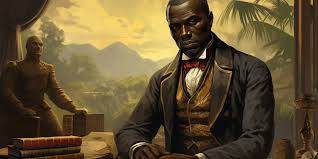Revisiting the Title of “King†in Traditional Leadership: A Shift in Public Perception
In recent times, there has been increasing debate about the appropriate titles for traditional leaders, especially in communities where the term “king†is often used interchangeably with the more traditional “chief.†While both titles hold significant cultural and historical importance, there is growing discourse on whether traditional leaders should be referred to as “kings,†particularly in the context of modern governance structures.
The concept of kingship is rooted in monarchy, where a king or queen inherits the throne and typically wields significant political and social power over a nation or large region. Historically, kings often had centralized authority, with their decisions affecting entire countries. In contrast, traditional chiefs, while influential within their local communities, do not generally hold the same level of political power or constitutional authority as modern-day monarchs. Chiefs in many African societies, for example, are primarily seen as custodians of culture, tradition, and land, guiding their people in a spiritual, judicial, and social capacity.
However, some communities have increasingly embraced the term "king" for their traditional leaders, perhaps to align with contemporary notions of royal status or to elevate the prestige of their positions. This shift can also be attributed to a desire to reinforce the symbolic role of traditional leaders in the face of globalized, western-influenced governance systems.
The growing use of the term "king" has sparked concerns among scholars and cultural custodians, who fear that this change could blur the lines between modern constitutional monarchies and traditional African leadership. The modern concept of kingship, often tied to state power and political sovereignty, contrasts sharply with the more localized and community-based authority of traditional chiefs. Critics argue that equating chiefs with kings could undermine the unique cultural systems that define traditional leadership, reducing it to a title that may not align with its actual function or historical role.
Moreover, the public perception of these traditional leaders as "kings" could lead to confusion, particularly in regions where traditional governance structures coexist with democratic political systems. The roles and responsibilities of a chief are vastly different from those of elected political leaders, and equating them with kings could inadvertently grant them undue influence or power in local politics.
Ultimately, the discourse surrounding the use of "king" for traditional leaders is a complex issue that reflects the ongoing evolution of governance in post-colonial societies. While the title "king" might offer prestige, it is essential to consider its cultural implications and the role of chiefs in maintaining the delicate balance between tradition and modernity.


